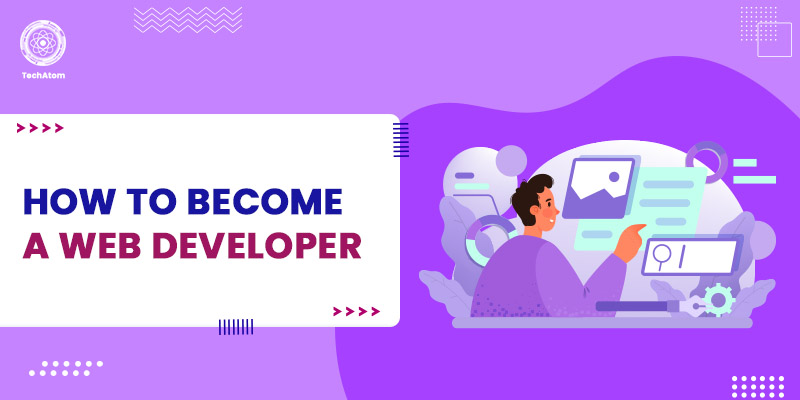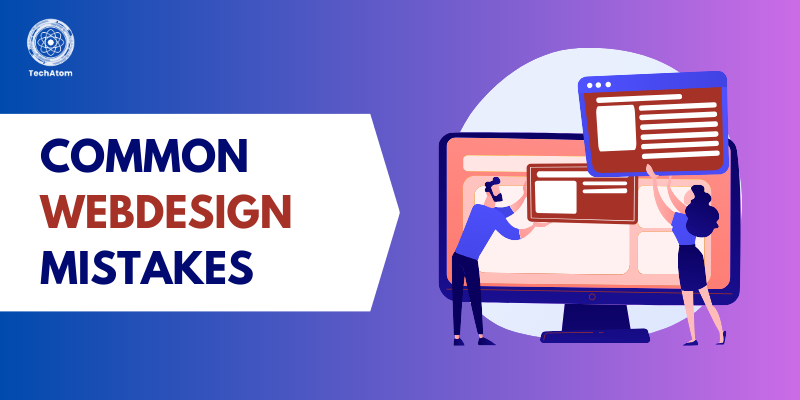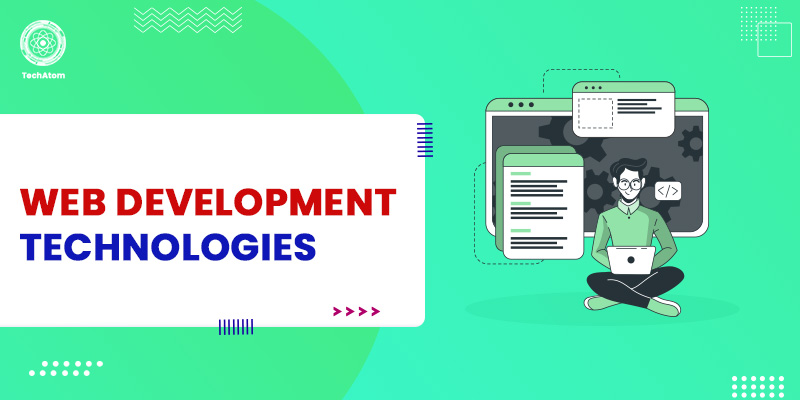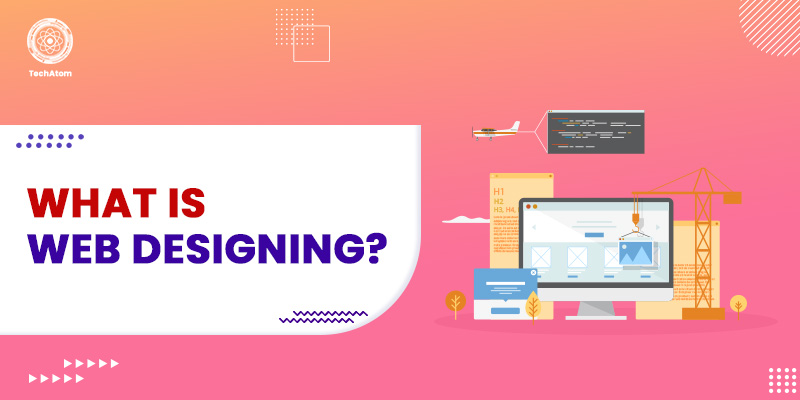Web development is one of the most popular and interesting jobs. To be a web developer, it is essential to have knowledge of various programming languages like CSS, JavaScript, HTML, etc. When the fundamentals are strong, it becomes easier to have a strong hold over coding and gain expertise in web development.
For beginners, a question arises, how to be a web developer? Well, this guide will help you answer this question in detail!
Let’s begin!
Who is a Web Developer?
A web developer designs, maintains, and optimizes websites and other web apps for customers. Their role and work depend on other fields such as software development, computer programming, graphic design, etc.
Furthermore, web development is also inclusive of site maintenance and optimizing it. The task of checking the accuracy, redundancy, and maintaining a website's structure is also crucial.
We are dividing the skills needed by web developers into two parts:
- Soft skills
- Hard skills
Soft skills
These skills include complex problem-solving techniques and expertise, data analysis, evaluation of various operations, project management, deductive reasoning, etc.
Hard skills
This field includes expertise in coding and programming, testing and debugging, database management, SEO strategy, UI design, etc.
In addition, there are various aspects of a development process. Let’s discuss them one by one.
Types of Web Developers
There are different types of web developers assigned different tasks of handling the websites. Here is the detailed description:
Front-end developer
These developers work for the front side of the website, i.e., the side user accesses. It is expected of them to build appealing user interfaces and interesting designs.
Roles and Responsibilities
A front-end developer is responsible for maintaining and handling the tasks below:
- Providing a great user experience
- Maintaining an excellent user interface
- Fixing bugs and errors for smooth functioning
- Managing workflow
- Developing tools for better functioning of the site
- Coordinating with the backend developer for best implementations
Check out: Front-end Developer Skills
Salary Insights: Jobs for Frontend Developers
Note: According to AmbitionBox, the average salary of a frontend developer in India is 4.5 Lakhs. However, with experience, it reaches up to 20 Lakhs. (The salary criteria and package is subjected to different requirements and budget of a company).
- Front-end Developer/Engineer
- Mobile/Tablet Front-end Developer
- Front-end SEO Expert
- Front-end Accessibility Expert
- Front-end Testing/QA
- Front-end Dev. Ops
- CSS/HTML Developer
- Web/Front-end User Interface Developer/Engineer
- Front-end Web Designer
Back-end developer
Such developers help optimize a website's structure that a user doesn’t see. It includes coding and designing databases using languages such as PHP, CSS, Python, etc.
Roles and Responsibilities
- Writing efficient codes
- Managing the backend
- Managing hosting environments
- Debugging
- Troubleshooting
- Speed and efficiency of web applications
- Identifying areas of improvements
Check out: Backend Developer Skills
Salary Insights: Jobs for Backend Developers
Note: According to AmbitionBox, the average salary of a backend developer in India is 5.5 Lakhs. However, with experience, it reaches up to 20-25 Lakhs. (The salary criteria and package is subjected to different requirements and budget of a company).
- Backend Developer
- Sr. Backend Developer
- Lead Backend Developer
- Node.js Backend Developer
- Java Backend Developer
- Python Backend Developer
- .Net Backend Developer
Full-stack developer
When front-end and back-end development combines, it forms full-stack development. All the features, such as the website interface, content, etc., are quite visible to the users and come under front-end development. Furthermore, the entire database and the coding structure form the back end of a website. Therefore, the back end is the backbone of the front-end structure.
Those developers who fulfill the requirements of both back-end and front-end as and when required are known as full-stack developers.
Roles and Responsibilities
- Designing and managing front-end and back-end web structure
- Guaranteeing application’s responsiveness
- Building servers and databases
- Managing databases
- Understanding both technical needs and customer requirements
- Team collaboration for better functioning of the product
Salary Insights for Full-Stack Developer
According to AmbitionBox, the salary of a full-stack developer is 6.5 LPA.
Overall, the salary potential of a web developer is highly promising. Here is the comparison based on the annual average salary of a web developer in India and the U.S.
In India
According to payscale, the average salary of a web developer as a fresher is 3.2 Lakhs. However, with experience, different organizations offer packages that may reach up to 15 Lakhs.
In USA
According to BLS, the job growth of web developers is twice the average of all major occupations in the nation. The median annual wage of a web developer is $30,000+ as compared to other sectors.
How to Become a Web Developer?
There are several steps to landing a web developer job. You must excel at the basics of web development. Further, we are mentioning a step-by-step guide to becoming a web developer:
- Get a degree
- Choose specialization
- Pursue an internship
- Build a portfolio
- Get certifications
- Build a resume
Get a degree
It is extremely important and helpful for an individual to complete their education to gain knowledge of programming skills.
The computer science course is the most opted course by aspiring developers. It comprises in-depth knowledge of core courses such as database management, system design, various programming languages, and much more. This helps to develop the skills required for handling the tasks of a web developer while working in the industry.
A bachelor's degree in computer sciences is of 4 years. Whereas an associate degree takes 2 years to complete. However, if you aim for a senior post, it is highly recommended to complete a master’s degree or a doctorate.
For a fresher, a bachelor's degree is sufficient. Whereas the posts requiring an experienced candidate prefer an individual holding a degree in higher studies.
Choose a specialization
As mentioned above, web developers have 3 different types of specializations; front-end, back-end, and full-stack.
Hence, it is crucial for you to analyze and choose one field as your primary choice. All 3 are extremely well-paying specializations when it comes to opting for them as a career choice.
Pursue an internship
After attaining a degree or in between, it is advised to the candidates to fetch an internship. An internship is a great start that provides an opportunity for the students to develop new skills. It helps you learn and polish your skills. Moreover, you get an understanding of the working environment of an organization.
All these factors prepare you for your professional careers ahead.
If you opt for an internship towards the end of your degree, most companies keep you as a permanent employee, depending on your performance. Therefore, it's a win-win situation.
Build a portfolio
A portfolio is an identity of a candidate’s skills and knowledge. It showcases your work and achievements. Furthermore, it is the first thing any recruiter or employer looks at while choosing a candidate. Therefore, make sure you build an impressive portfolio and present your best work. You must include at least one website developed by you that includes no messy code.
It is highly recommended to keep an updated portfolio of all your accomplishments.
Here is what you can include in your portfolio:
- Course material
- Projects
- Internships
Additionally, the employer isn’t just looking for your knowledge; they look for your problem-solving and analytical skills. So, make sure you are good at that!
Get certifications
Getting certifications as a web developer opens various opportunities. Such programs reflect the willingness of a candidate to learn more and attain additional skills. Furthermore, it provides an extra boost in finding a job as employers prioritize such candidates more.
Many reputed organizations offer certifications, like Adobe, Microsoft, Cisco, Google, and others. They conduct exams in various courses such as JavaScript, cloud computing, networking, etc. Therefore, earning these certificates is a brownie point for professionals.
Build a resume
Finally, build a professional and precise resume. Every candidate must have their resume updated at all times. This document is your professional identity and shows your abilities and skills.
Here are some points that you must include in your resume:
- Education qualifications
- Internships
- Work experience (If any)
- Projects
- Knowledge of programming languages
- Hobbies/ extracurricular activities
- Professional certifications
- Awards
A resume puts your first impression on the employer, and no one wants it to be negative. Therefore, keep it simple and informative.
Start applying
All the candidates are recommended to build their professional profiles on various job platforms such as LinkedIn, Glassdoor, Naukri.com, Monster, etc.
Such platforms have a wide network of individuals working in this field for years. It becomes easy to apply and reach a wider number of people. Moreover, you get various opportunities from all over the world. But as there are plenty of options, here are a few tips you can follow while applying for a job:
- Do proper research on the companies you are interested in.
- Understand their requirements and see if your interest aligns with that role/position.
- Keep your resume updated and highlight your best work showcasing versatility.
- Prepare well before the interview and practice questions.
What do I Need to Learn to Become a Web Developer?
A web developer must inherit and work towards specific qualifications to excel in this field. You shall have an aptitude or understanding of the following skills:
- User experience
- User interface
- Coding languages such as Javascript, Python, HTML, CSS, etc.
- Frontend web programming languages like JavaScript, AJAX, etc.
- Backend web programming languages C#, MySQL, PHP, Ruby, etc.
- SEO knowledge
- Knowledge of design software
However, there are different categories of web developers, so each developer's requirements differ in the industry. Here is a list of the skills required to be a web developer.
Top skills for frontend developers
- Java
- JavaScript
- Angular
- JQuery
- HTML
- CSS
- JSON
- AJAX
- React
Top skills for backend developers
- JavaScript
- MySQL
- Python
- Java
- HTML
- CSS
- Git
Top skills for full-stack developers
- HTML and CSS
- JavaScript and its environments like NodeJS and ExpressJS
- Python with Python frameworks like Django and Flask
- C#
- MySQL
- PostgreSQL
- MongoDB
- Oracle Database
What is the future of Web Development?
Web development technologies are evolving with each passing day. Further, the world has become more digitalized. Therefore, every business requires web applications!
Millions of people currently access the web, and many run their businesses amidst this competitive web market. But what does the future of web development behold?
Here we are mentioning the 7 advanced technologies that will rule web development in the future.
- Artificial intelligence: The future is AI. We are already indulging in it daily, such as by using Alexa. In the future, it is going to be a great technological innovator. Moreover, the job openings in this field will be on an all-time rise!
- Quantum computing: This means the development of computer apps is based on the principles of quantum theory.
- Blockchain: Blockchain technology stores information in blocks digitally. A popular example is that of cryptocurrencies. Crypto usage has increased significantly and is about to boom in the future.
- Motion UI: Used to build fully responsive web designs. Motion UI can help create motion within an app for design projects.
- Accelerated mobile pages: It's a hot web development trend. Google and Twitter collaborated to work on AMP to create faster mobile pages.
- Virtual reality: VR provides a simulated environment of a 3-D image or a whole surrounding. At present, it can be seen in virtual meeting rooms. But the scope of VR is vast, and it will bloom in the future.
- Augmented reality: AR is being adopted by big eCommerce companies such as Amazon (to create virtual rooms), Nykaa (to apply cosmetics virtually), and more. Additionally, this usage is predicted to increase in the future.
This list of technologies in web development does not end here. There are plenty of other advancements too. Besides, these innovations prove that the future of web development has much to offer.
Top Interview Questions for Web Developers
If you aim to crack the interview, these questions can greatly help. Take a look:
Ques.1 What are the key responsibilities of a web developer?
Ans. A web developer must:
- Have problem-solving skills.
- Build projects using languages such as HTML, CSS, JavaScript, and CSS.
- Have teamwork capabilities to work with the members and maintain a smooth workflow.
- Be updated regarding the latest technologies and innovations.
- Fix the bugs, of any.
- Take care and maintain the database.
Ques.2 What is CORS?
Ans. Cross-Origin Resource Sharing is a mechanism that gives controlled access to resources outside a given domain. It is supported in HTML5 that manages XMLHttpRequest access to a different domain. A web page can add cross-origin images, scripts, spreadsheets, iframes, and videos.
Ques.3 What are the advantages of HTTP 2 as compared to HTTP 1.1?
Ans. Advantages of HTTP 2 over HTTP 1.1:
- Faster and more efficient.
- Prioritize content during the loading process.
- Efficient coding for HTTP header fields
- Prioritization of request
Ques.4 What is an ETag?
Ans. An entity tag (ETag) is an HTTP header. It is primarily used for conditional requests from browsers for multiple resources.
Ques.5 What is long polling? How does it work?
Ans. Long polling is a methodology used to get updated information and data from the server. It’s easy to implement and delivers messages with zero delays. Here is the working of long polling:
- Send a request to the server.
- Until the server sends a message, it doesn’t terminate the connection.
- As soon as the message appears, the server responds.
- A new request is made instantly by the browser.
Ques.6 In HTML, which tag is used for a multi-line text input control?
Ans. In the case of multi-line text input control, use the “textarea tag”.
Ques.7 How can you reduce the load speed of a website?
Ans. You can reduce the load speed of the site by following these steps:
- Perform HTTP compression
- Reduce the size of images
- Lessen the redirects
- Cache web pages
- Cut down javascript parsing
- Optimize caches
Ques.8 What are the new APIs in HTML 5 standard?
Ans. HTML5 standard has several APIs, such as data transfer API, command API, media API, history API, Application cache API, text track API, and more.
Ques.9 What is DTD (Document Type Declaration)?
Ans. DTD demonstrates the attributes, structure, and elements of an XML document. It scans if the document is valid or not. There are two types of DTD; internal DTD and external DTD. When the DTD is declared inside a document, it is known as internal DTD; when declared outside, it is called external DTD.
Ques.10 What is the use of Canvas in HTML?
Ans. You can use Canvas to draw the graphics using JS, such as graphs or simple animations.
Conclusion
In a nutshell, web development is one of the most promising careers. If you’re interested in this field, you must go for it. While pursuing the degree, you can analyze which specialization suits you best! The future is bright and holds stability.
In this post, we tried to provide you with the ins and outs of being a web developer. We hope that this information helps you in the best possible way!
Good luck!
People are also reading:
- Cheat Codes for Designing User Interfaces
- SEO Best Practices
- Difference Between UI, UX, and Web Designer
- Best Productivity Apps
- Great Ideas for Small Business
- Types of Software
- What is a Single Page Application?
- Types of Websites
- Quillbot vs Grammarly
- Top New CSS Features
Frequently Asked Questions
1. What are the types of web developers?
There are mostly 3 types of web developers: front-end developers, back-end developers, and full-stack developers.
2. How hard is it to become a web developer?
It is not tough to become a web developer. However, you require consistent hard work and patience to excel in various programming languages.
3. How should I start working as a web developer?
Firstly, you must hold a degree in computer science or a related course. However, you can complete certification and join the industry if you don't have a degree.
4. How much do web developers make?
Different web developers have different packages. Please read our article for a detailed outlook.
5. Is it worth learning web development?
Yes, individuals can expect an incredible career in web development with impressive salaries.




